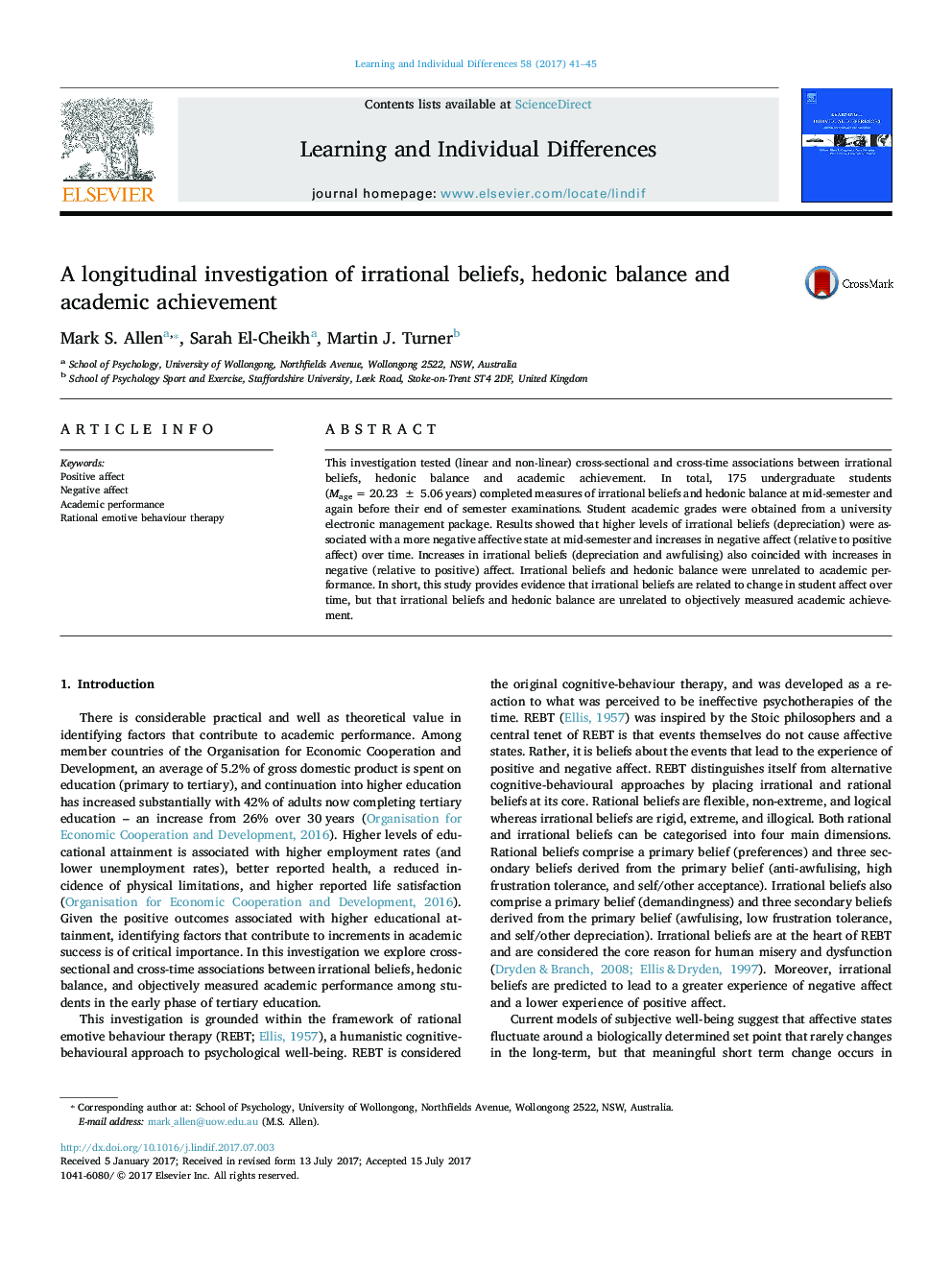| Article ID | Journal | Published Year | Pages | File Type |
|---|---|---|---|---|
| 4939961 | Learning and Individual Differences | 2017 | 5 Pages |
Abstract
This investigation tested (linear and non-linear) cross-sectional and cross-time associations between irrational beliefs, hedonic balance and academic achievement. In total, 175 undergraduate students (Mage = 20.23 ± 5.06 years) completed measures of irrational beliefs and hedonic balance at mid-semester and again before their end of semester examinations. Student academic grades were obtained from a university electronic management package. Results showed that higher levels of irrational beliefs (depreciation) were associated with a more negative affective state at mid-semester and increases in negative affect (relative to positive affect) over time. Increases in irrational beliefs (depreciation and awfulising) also coincided with increases in negative (relative to positive) affect. Irrational beliefs and hedonic balance were unrelated to academic performance. In short, this study provides evidence that irrational beliefs are related to change in student affect over time, but that irrational beliefs and hedonic balance are unrelated to objectively measured academic achievement.
Related Topics
Social Sciences and Humanities
Psychology
Developmental and Educational Psychology
Authors
Mark S. Allen, Sarah El-Cheikh, Martin J. Turner,
